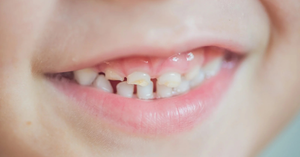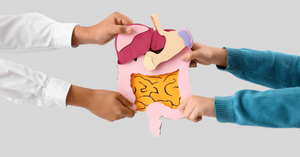Parents often think cavities are the main threat to their child's dental health. However, various other dental issues can arise, particularly during the early years when children's teeth and gums are still developing. These problems, if not addressed promptly, can lead to discomfort, infections, and even long-term dental complications. In this article, we'll explore some of the most common dental problems in kids beyond cavities, offering tips on prevention and when to seek professional help.
Most common dental problems in kids beyond cavities
1. Tooth Sensitivity
Tooth sensitivity isn't just an adult issue—many children experience it as well. This can happen when the enamel, the outer layer of the tooth, becomes worn down, or when gum tissue recedes, exposing the sensitive dentin underneath. Kids might complain of pain or discomfort when consuming hot, cold, or sweet foods.
Prevention and Treatment: Ensure your child uses a soft-bristled toothbrush and fluoride toothpaste. If sensitivity persists, consult a dentist for further evaluation.
2. Thumb Sucking and Its Effects
Thumb sucking is a natural reflex in infants and toddlers, but if it continues beyond the age of four, it can lead to dental issues such as misaligned teeth and jaw problems. Prolonged thumb sucking can also cause changes in the roof of the mouth.
Prevention and Treatment: Encourage your child to stop thumb sucking by offering positive reinforcement. If the habit persists, a dentist may recommend a mouth appliance to help curb the behavior.
3. Gum Disease (Gingivitis)
Gum disease is not just an adult problem. Children can also develop gingivitis, the earliest stage of gum disease, characterized by red, swollen, and bleeding gums. This is often caused by poor oral hygiene.
Prevention and Treatment: Teach your child the importance of brushing twice daily and flossing regularly. Routine dental check-ups are essential for detecting and treating gum disease in its early stages.
4. Tooth Grinding (Bruxism)
Tooth grinding, or bruxism, is common in kids, especially at night. It can lead to worn-down teeth, headaches, and jaw pain.
Prevention and Treatment: Ensure your child isn't under stress, which can contribute to bruxism. A dentist may suggest a night guard to protect your child's teeth while sleeping.
5. Orthodontic Issues
Many children develop orthodontic issues, such as overcrowded teeth or an improper bite. These problems can affect their ability to chew, speak, and maintain proper oral hygiene.
Prevention and Treatment: Early orthodontic evaluations, usually around age seven, can help detect and address these issues before they worsen. Treatment options may include braces or other orthodontic appliances.
Conclusion: A Proactive Approach to Your Child's Dental Health
Caring for your child's teeth goes beyond just preventing cavities. By being aware of these common dental problems and taking a proactive approach to oral hygiene, you can help ensure your child's smile remains healthy and bright. Regular dental check-ups, proper brushing and flossing habits, and timely intervention when issues arise are all key to maintaining your child's dental health. Remember, a healthy smile starts early, and your efforts now can lead to a lifetime of good oral health for your child.








Be the first one to comment on this story.